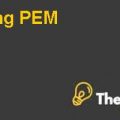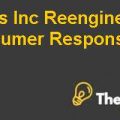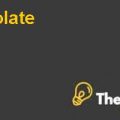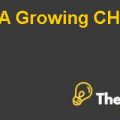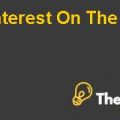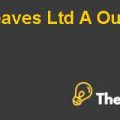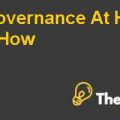
Q1. Who owns Hertz and why they are selling this business? How might the nature/ identity of the owner and their reasons for selling Hertz have relevance for the buyers of Hertz?
Hertz has a very complicated history of multiple switches of ownerships throughout the life of the company. It was established by a in 1918 as a car rental operation with 12 cars, which he had customly build himself. After 5 years of great success, the company was sold to John Hertz who owned a cab, truck and coach manufacturing company. He changed the name of the company with his own name and a brand was developed.
Hertz sold the company to General Motors, which sold it to Omnibus Corporation in the future and it finally landed to Ford Motor Company. After being listed on the New York stock exchange a couple of times in 2001; Ford acquired the remaining holding floating in the market that made Hertz a wholly owned subsidiary.
Jacques A. Nasser was promoted to become the CEO of Ford’s worldwide operations in 1998 and as per his diversification strategy, multiple investments and acquisitions were made over time leaving Ford’s impressive cash reserve of $15 billion to less than $1billion but the unfortunate part was the strategy proved to be unsuccessful and Ford was in deep financial trouble by the time CEO was changed as the damage was already done. This required immediate cash inflows, which made Bill Ford Jr. take the decision to sell off Hertz.
Looking at the bigger picture, the buyer of Hertz needs to understand why the strategy of Ford had failed even though individually Hertz had been performing well and was growing in both of its market segments, which raised the question if a multinational company such as Ford was not able to manage a rental company such as Hertz then how any other company would be able to do it. Although, Hertz had an experienced management but they had no exposure from Ford as CEO Nasser had adopted hands off approach through the buyer was able to make synergies with their own management style.
Q2. What are the potential merits of this investment? How might a financial investor’s view be different from that of a strategic buyer?
Potential merits of this investment can be seen in the financial health of the company along with the current market standing and future operational synergies that it is providing from the investment to the buyer.
This would provide us with a virtual investment thesis of this investment. In addition, a financial investor would be very interested in the financial health of the company in order to make its decision based on the factors, which would determine how much return he would receive over time. Whereas, a strategic buyer would be more focused on finding future operational synergies with their current business, which would give him a specific reason to invest in the business rather than just investing for financial benefit.
Financial Health:
There is a 132% increase in the Pre-tax income of the Hertz from 2002 to 2004, which was a substantial increase.
The net income of the company also increased by 131% from year 2002 to 2004.
The total adjusted EBIDTA of the company increased by 83% during the years from 2002 to2004.
There was a substantial growth in the pre-tax profit, net income and adjusted EBITDA,which made Hertz a viable investment on the basis of the company’s profitability and earning potential.
Synergies
The drivers that would lead to increase in profitability of Hertz for the car rental business are the number of transactions, length of each rental, revenue per each rental day and fleet utilization viable strategies. In order to enhance these drivers, the company is already operating well managed but injection of new ideas and means by the buyer company will lead to enhancement of efficiencies, which will ultimately result in greater profits.
But most importantly it is the change in management style, which the company requires at the moment as the management of Ford has given them a free-hand not pushing it to the limit in order to achieve greatness. In addition, the buyer company can certainly bring that element, which can lead Hertz to become the market leader.
Now a financial investor would over look such elements as he would only see that the company is profitable but the parent company is making losses and is in dire need of cash, which could lead him to buy the company cheaply by paying cash up front and not focusing on any changes that would leave the company..................
This is just a sample partial case solution. Please place the order on the website to order your own originally done case solution.

